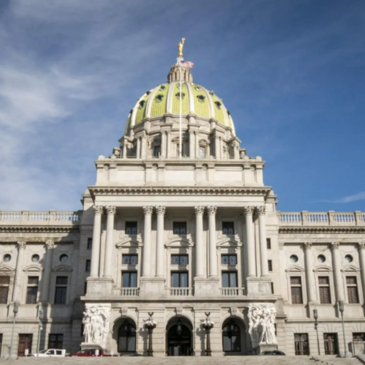 When the Pennsylvania Senate reconvened on Aug. 30, Senators passed two separate fiscal code bills designed to advance the budget process and drive out the approximately $1.1 billion in state funding that still awaits authorization after Gov. Josh Shapiro signed the main state budget earlier that month.
When the Pennsylvania Senate reconvened on Aug. 30, Senators passed two separate fiscal code bills designed to advance the budget process and drive out the approximately $1.1 billion in state funding that still awaits authorization after Gov. Josh Shapiro signed the main state budget earlier that month.
The larger of these two bills, House Bill 1300, designates funding for a wide array of state programs. It authorizes certain fund transfers and directs support for education, healthcare, and emergency services.
House Bill 1300 provides $295 million in Ready-to-Learn Block Grants for school districts across Pennsylvania, which supporters are calling a crucial step toward supporting quality education and empowering innovation at the local level. The bill also designates $261 million in state aid for community colleges, a two percent increase over last year’s funding levels.
Moreover, House Bill 1300 extends $65.4 million in funding to the Pennsylvania State System of Higher Education (PASSHE) for early repayments on existing debt associated with campus buildings at the Penn West trio in California, Clarion, and Edinboro. The bill also ties state aid for PASSHE to a tuition freeze for academic years 2032-24 and 2024-25, aiming to alleviate the financial burden on students and promote access to higher education.
Additional educational allocations include $70 million in state aid for libraries; $14.5 million in funding for career and technical programs; and $11 million in grants for school safety initiatives in non-public schools. The bill also empowers the Pennsylvania Department of Education to direct up to $7 million in undistributed funds toward school districts under financial distress.
House Bill 1300 also makes notable investments in health and public safety. The bill designates $20 million for counties to support mental health services and increases the state trooper complement by around 400 troopers, up to 4,410, to bolster law enforcement capabilities.
Furthermore, the legislation helps ensure fair compensation for first responders by adjusting state reimbursement rates to the greater of Medicare or Medicaid rates. House Bill 1300 also provides certainty to nursing care facilities by requiring the Department of Human Services to base each facility’s case mix rate on the data used to determine rates for Fiscal Year 2022-23.
Other provisions include the redirection of $150 million from the Game Fund, created by oil and gas drilling rent and royalty payments on state game lands, to the Clean Streams Fund. The bill also raises the payment in lieu of taxes which several state agencies make to rural municipalities to $2.40 per acre and transfers $31 million from the Medical Marijuana Program Fund to the General Fund, reallocating resources to support broader state initiatives.
The other bill the Senate passed on Aug. 30, Senate Bill 757, focuses on two majority caucus priorities excluded from Gov. Shapiro’s enacted budget: the creation of the Pennsylvania Award for Student Success (PASS) scholarship program and an expansion of the Educational Investment Tax Credit (EITC).
Several priority issues Democrats raised in budget talks – including $100 million in supplemental funds for the state’s 100 poorest schools, $10 million in stipends for student teachers, $100 million for school mental health services, and $175 million for the Whole-Home Repairs program – received no allocation under either bill. It is likely these programs will remain a focal point when the House returns to session.